Reimagining workplace learning: Early insights from the annual L&D benchmark report
)
What are top performing organisations doing differently and how can leaders create real, long-lasting change across their businesses? In their session at Learning Technologies 2022, Nahdia Khan, Chief Impact Officer and Gent Ahmetaj, Head of Research, explored the latest L&D trends from the upcoming Mind Tools for Business Annual L&D Benchmark Report.
This data-led report draws on over 19 years of longitudinal research within the learning community, and helps readers to identify how L&D leaders and strategists' approach organisational learning
As well as sharing early insights from the annual report, they also shared some interesting results from the 2022 Learner Intelligence Report, which is available to download.
Missed the session at the event or looking to refresh your memory? Here are five highlights from:
1.Organisations are better at adapting to change than they think they are
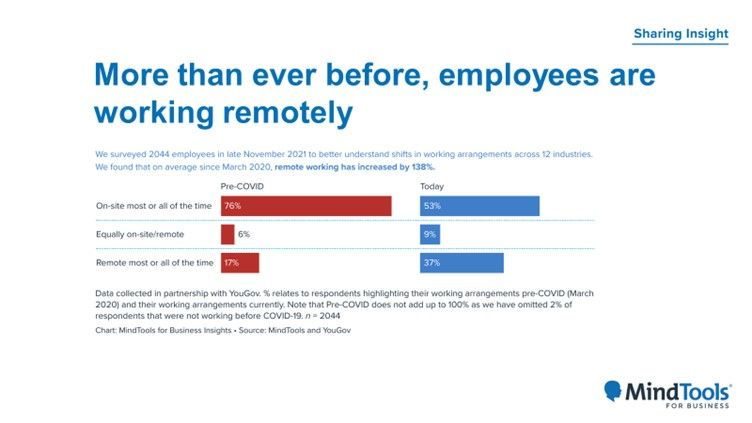
Even though many employees had previously expressed their desires to work from home, a lot of organisations were unable or unwilling to adapt. However, the pandemic saw a large majority of firms shift to working at home full-time, almost overnight, proving that they were able to adapt much more easily than expected.
Before Covid-19, organisations expected it to take an average of 454 days to increase remote working and collaboration and, thus, around 50 percent did not see this as a top business priority.
In reality, this process took an average of just 10.5 days and, now, the majority of firms are confident that technology-related changes like this are likely to stick in the long-term (McKinsey Survey – November 2020).
2. Face-to-face learning is no longer the gold standard
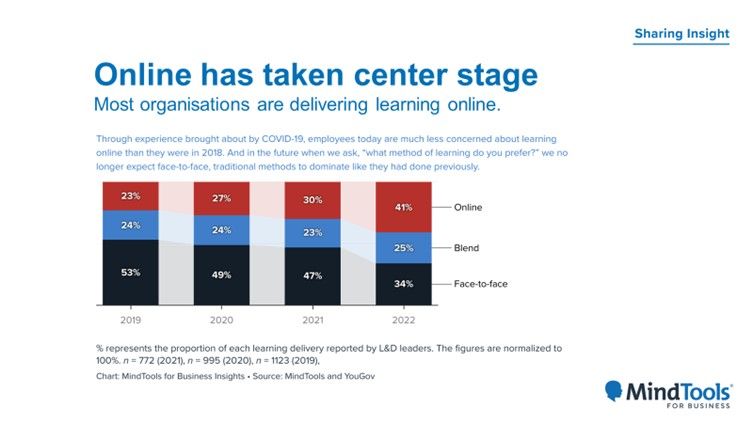
As a result of the changing landscape and shift toward more flexible working arrangements, L&D organisations have pivoted rapidly to digital-first approaches. This has also resulted in greater investment in social, mobile and analytics technologies, as part of wider digital transformations.
Despite the increase in online learning among the majority of top-performing businesses, they still need to be careful when moving toward digitalisation. Moving too quickly and without careful consideration could land them in trouble, particularly if they aren’t prepared for such a cultural change. It can also have implications for budgets, if organisations spend money on digital tools, without first consulting with their employees on what sort of resources they find most valuable.
3. You can’t have rapid digitalisation without cultural innovation
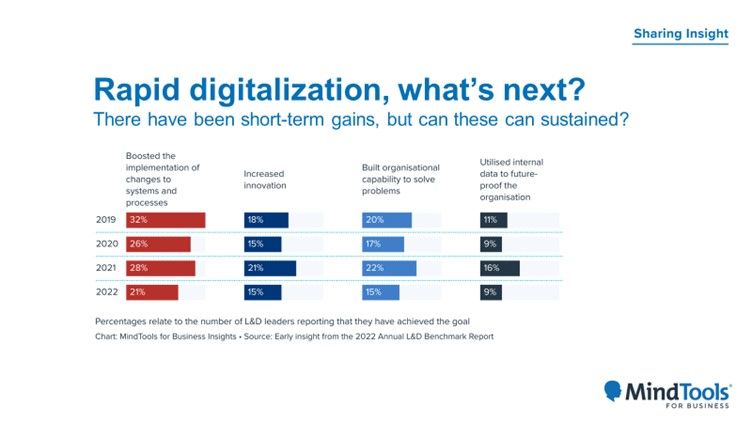
As we know, because of the pandemic, there was a rapid digitalisation of learning. However, a lot of these changes were made before some organisations were culturally ready (see image above).
This rapidity has created short-term gains and has helped challenge legacy expectations from business leaders and many other stakeholders. However, whether this can be sustained is questionable, as many organisations saw digitalisation as a necessary change, rather than a desirable one.
4. Employees rely on multiple, internal avenues to find out about learning opportunities
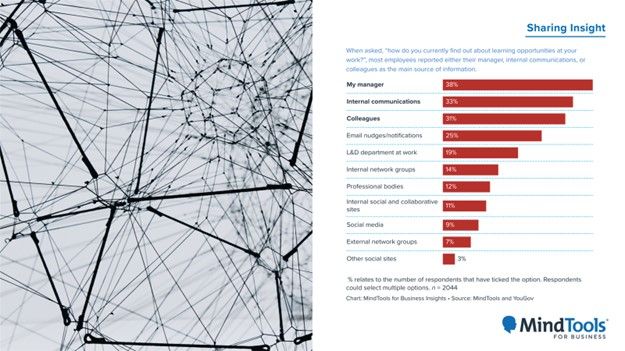
It turns out that there isn’t just one place from which employees source their learning.
Finding out about learning opportunities is a multileveled process, which is good news for L&D. The top avenues that employees use to find out about opportunities are all internal – from sources they know and trust.
Seeing as most people learn from their managers and fellow employees, it’s vital that all employees are aware of where to access the right resources.
5. A lack of access caused a decline in employee wellbeing
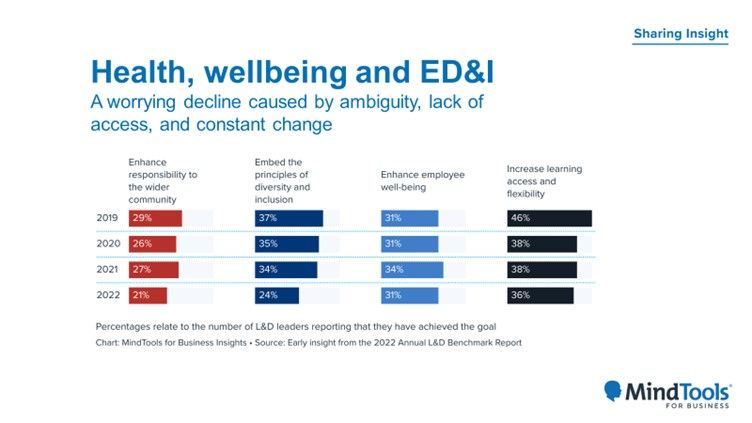
While the shift toward more flexible working patterns have been welcomed by employees in most if not all industries, we are seeing a worrying decline in health, wellbeing and ED&I-associated goals.
L&D leaders need to make sure they are accurately signposting these types of resources so that they are easily accessible internally. For example, by using internal communications and by making sure managers have them to hand when needed (see image above).
Natalie Benfell
Content & Product Marketing Manager, Mind Tools for Business

Report authored by:
Gent Ahmetaj, Head of Research, and Anna Barnett, Researcher
Mind Tools for Business
Download: 2022 Learner Intelligence Report
Download: ‘Annual Benchmark Report’ from 6 July 2022. Sign up for early access.


)
)
)
)
)
)
)
)
)
)
)
)
)
)
)
)
)
)
)
)
)
)
)
)
)
)
)
)
)
)
)
)